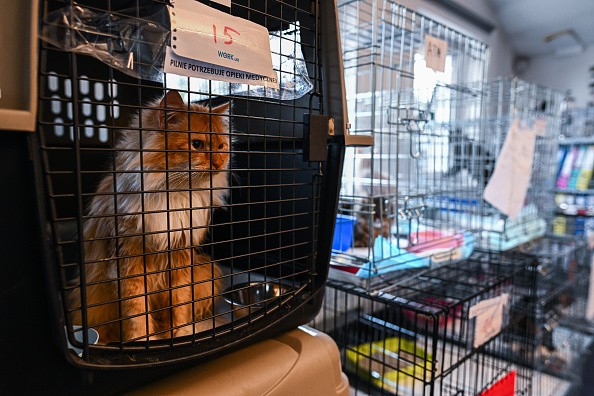After confiscating hundreds of animals earlier this week, humane law enforcement officers at Lollypop Farm accused an animal breeder in Wayne County of animal abuse.
Sally Reaves, executive director of World of Wildlife Educational Encounters in Marion, is charged with a misdemeanor for failing to give adequate food and water.
Lollypop Farm humane inspectors said they discovered over 800 animals, including mice, rats, ferrets, and rabbits, living in what they termed as cruel circumstances while working with state and federal authorities.
Animal cruelty of an animal exhibitor

There were 475 mice, 155 rats, 42 rabbits, 25 guinea pigs, 48 degus, 6 spiny mice, 5 pigs, and 2 ferrets among the animals retrieved, with many litters of kids being produced every day, as per ABC 13 WHAM.
Investigators claimed they found hundreds of domesticated and exotic animals that live in horrible conditions earlier this week.
Reeves was accused of failing to give adequate food and drink.
The veterinarian and shelter team at Lollypop Farm are working extremely hard to inspect each animal to guarantee that any diseases are treated and that sickness does not spread among the community.
"These circumstances where these animals were found were filthy and terrible."
"Soiled, 10-gallon terrariums including over 100 mice dwelling cramped together were discovered," stated Reno Di Domenico, Vice President for Humane Law Enforcement at Lollypop Farm via WXXI News.
He stated that the ammonia levels caused by the animal feces rendered dealing with the animals challenging, but they have been able to comfortably extract them.
The New York State Department of Environmental Conservation and the United States said the inquiry is being assisted by the Department of Agriculture, and DEC received some of the unusual creatures.
Reaves has been summoned before Marion Town Court on April 6.
According to Lollypop Farm officials, if guilty, Reaves may face a $1,000 penalty and/or a year in jail.
According to a statement on the World of Wildlife Educational Encounters website, they are "devastated" by the recent confiscation of several of their animals who already have served as "animal ambassadors" in their wildlife initiatives throughout the years.
According to the report, animals taken by the DEC were removed owing to a mistake in licensing documentation, not because of their living circumstances.
Animal abuse
Animal cruelty is defined as intentionally inflicting pain, hurting, or killing an animal.
Cruelty can be purposeful, such as kicking, burning, stabbing, beating, or shooting, or it can be neglect, such as denying animal water, shelter, food, and medical care, as per the Animal Welfare Institute.
Another kind of animal cruelty is animal fighting, in which animals are trained or compelled to attack one other in violent conflicts at the risk of serious damage or death.
According to the Humane Society, abuse and mistreatment cut across all social and economic lines, and media reports indicated that animal cruelty is prevalent in both rural and urban locations.
Intentional animal cruelty is highly linked to other crimes, including aggression against people.
Animals are frequently victims of hoarding behavior. Hoarding disorder sufferers may neglect animals by keeping than they're able to effectively care for.
Serious animal neglect (such as hoarding) is frequently a sign that a person requires social or mental health treatment.
According to surveys, individuals who purposefully mistreat animals are mostly men under the age of 30, but those who engage in animal hoarding are more likely to be ladies over the age of 60.
Related article: Two Residents Arrested Due to Animal Abuse of Pets in Omaha
© 2025 NatureWorldNews.com All rights reserved. Do not reproduce without permission.





